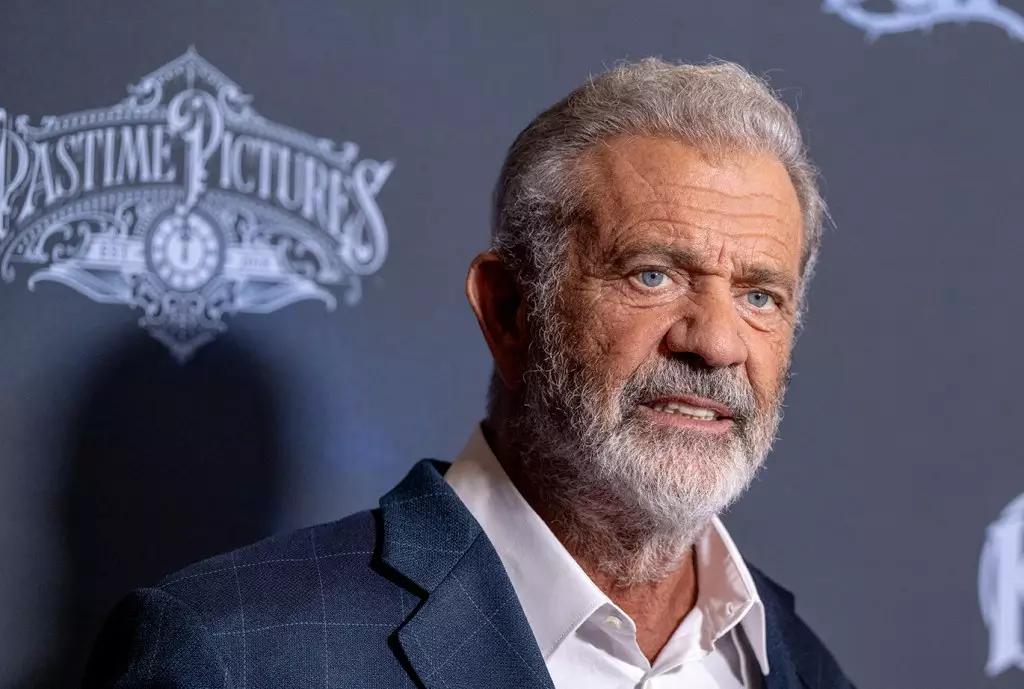The recent firing of Elizabeth G. Oyer, a high-ranking Justice Department pardon attorney, has ignited a firestorm of concern regarding the integrity of our judicial system and its susceptibility to political favor. This incident, centering on the restoration of Mel Gibson’s gun rights, raises a crucial question: To what extent does privilege impact justice? Oyer’s hasty removal just a day after refusing to recommend Gibson’s reinstatement lends itself to discomforting conclusions about power dynamics within our institutions.
By all accounts, Gibson’s past behaviors, including a 2011 domestic violence misdemeanor conviction, should elicit scrutiny rather than leniency. Oyer’s principled opposition to restoring firearm access to someone with documented abusive behavior speaks to a larger issue—are celebrities and their connections allowed to bypass the very laws intended to protect our society? Oyer’s case highlights a pervasive sense of danger when political clout supersedes public safety.
Hollywood Privilege and Public Safety
Gibson’s newly appointed role as a special ambassador to Hollywood has fueled an unsettling narrative that suggests being in the right position can override a checkered past. Is it not troubling that a person facing allegations of domestic violence could suddenly find his fundamental rights restored merely through association with powerful industry figures? Oyer articulated this concern, emphasizing that “giving guns back to domestic abusers is a serious matter”—a statement many in the public would likely support.
The reality is that recidivism among domestic abusers is alarmingly common, and the potential for harm escalates when firearms are involved. Oyer’s hesitance to recommend Gibson’s pardon was not rooted in partisan politics, but in the awareness of real consequences for victims and communities. It speaks volumes that political connections can lead to pressures on legal professionals to sidestep ethical considerations, prioritizing celebrity status over societal protection.
The Tug of War: Ethics vs. Influence
In her experience at the Justice Department, Oyer became embroiled in an ethical tug of war when she encountered a directive that seemingly prioritized Gibson’s influence over a strict adherence to public safety. According to her account, Deputy Attorney General Todd Blanche suggested that Gibson’s connection with President Trump should be justification enough for a recommendation. This raises an uncomfortable truth about the lengths to which some might go to curry favor with influential figures.
The implication that a personal relationship with political power should somehow mitigate the consequences of a crime is not only disturbing but also indicative of a troubling trend where privilege transcends accountability. Are we to accept that our legal system can be influenced by friendships and power struggles, particularly when they have the potential to endanger lives?
A Call for Accountability
The situation has sparked a call for greater accountability among those in power. Should not every individual, regardless of their fame or connections, be treated uniformly under the law? Oyer’s firing serves as a cautionary tale about the vulnerabilities that exist within our judicial processes. When cabinet members can apply pressure to bend the rules for celebrity figures, it presents a grim outlook for justice as we know it.
In a society that professes to uphold the rule of law as a cornerstone of democracy, any deviation from that principle—especially to accommodate those with influence—is a setback for us all. The question now is whether this incident will serve as a catalyst for reform and transparency, compelling us to reaffirm our commitment to a justice system that honors principles over politics.
The public sentiments stirred by Oyer’s dismissal should resonate deeply, prompting a collective reassessment of the mechanisms that govern our legal frameworks. As citizens, we must remain vigilant and demand a system that champions fairness and justice for all, where no one is granted a free pass based on their status or connections.


Leave a Reply